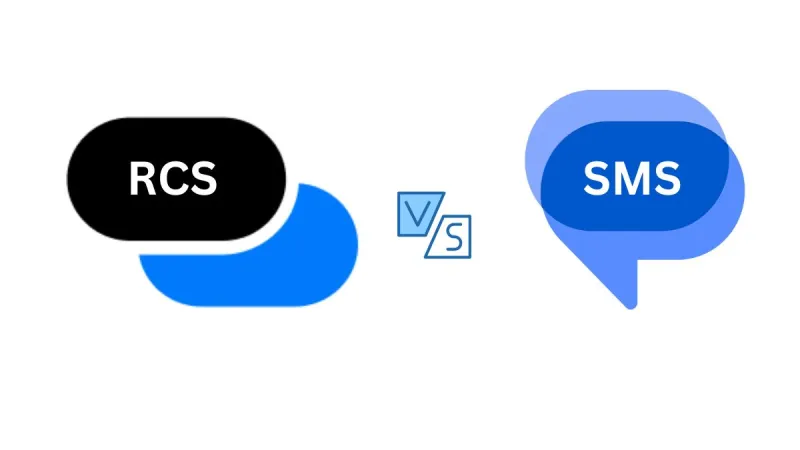As businesses strive to provide exceptional customer experiences, communication methods have evolved dramatically. One such advancement is Rich Communication Services (RCS) messaging, a technology that reshapes how companies interact with their clients. But what exactly is RCS messaging, and why is it so impactful?
What is RCS Messaging?
RCS messaging is an upgrade to traditional SMS that offers a richer, more interactive experience. Unlike standard text messages, RCS supports high-resolution images, videos, audio, and features like read receipts, typing indicators, and action buttons.
It brings the functionality of popular messaging apps to smartphones’ default messaging platform. This means businesses can deliver more engaging and actionable content directly to their customers’ native messaging apps without needing third-party applications.

The Importance of RCS Messaging in Customer Engagement
Enhanced Interactivity and Engagement
Imagine sending your customers plain text and a visually appealing message with images, videos, and interactive buttons. RCS allows businesses to create more engaging and personalized communication.
For instance, a retail store can send promotional messages with images of new arrivals, a video showcasing a product’s features, and buttons to view more details or purchase directly from the message. This type of messaging captures attention better than plain SMS and encourages more interaction, leading to higher conversion rates.
Improved Customer Support
Consider how easily customers can resolve issues when interacting with support directly through their messaging app. With RCS, businesses can offer a more efficient and user-friendly support experience.
For example, a telecom company can use RCS to help customers troubleshoot issues by sending step-by-step video guides or allowing them to schedule service appointments via interactive buttons. This reduces customers’ time and effort in resolving their problems, enhancing their overall satisfaction.
Boosting Operational Efficiency
RCS also enhances operational efficiency by automating and streamlining communication processes. Picture a banking institution sending RCS messages to confirm transactions or notify customers about suspicious activities.
The interactive nature of RCS means customers can respond immediately, reducing the need for follow-up calls or emails and speeding up resolution times. Automated responses and pre-set interactive options allow businesses to handle high volumes of inquiries swiftly and accurately, freeing up human resources for more complex tasks.

Real-Life Examples of RCS Messaging in Action
Retail Industry
A major fashion retailer uses RCS to launch new collections. Customers receive rich media messages showcasing the latest trends, with high-resolution images, video clips of fashion shows, and buttons to explore more or purchase.
This approach boosts sales and enhances the overall shopping experience by making it more interactive and engaging. These messages’ immediacy and visual appeal can significantly influence purchase decisions, creating a sense of urgency and excitement around new products.
Telecommunications
Telecom providers are leveraging RCS to improve customer service. For instance, customers experiencing connectivity issues receive RCS messages with troubleshooting tips, links to helpful videos, and options to schedule a service technician visit. This resolves issues faster and reduces the load on customer support centers. By providing instant solutions and self-help options, telecom companies can enhance customer satisfaction and loyalty while managing operational costs more effectively.
Banking and Finance
Banks use RCS to enhance security and customer interaction. For example, customers receive notifications of unusual account activity with options to verify or report fraud directly within the message.
Additionally, banks send RCS messages with investment opportunities, with interactive charts and links to detailed reports, making financial decisions more accessible and informed. This level of interaction builds trust and transparency between banks and their customers, fostering a more secure and supportive banking environment.
Travel and Hospitality
In the travel industry, RCS enhances the customer experience from booking to boarding. Airlines can send RCS messages with booking confirmations, boarding passes, flight updates, and even weather forecasts for the destination.
Interactive buttons can allow customers to check in, choose seats, or request particular services within their messaging app. This seamless interaction simplifies travel arrangements and enhances customer convenience, making the journey smoother and more enjoyable.
Healthcare
Healthcare providers use RCS to remind patients of upcoming appointments, share test results securely, and provide health tips. Patients can confirm appointments, reschedule, or even consult with healthcare professionals through RCS messages.
This improves patient compliance and satisfaction and streamlines administrative processes for healthcare facilities, reducing no-show rates and ensuring better resource management.

The Benefits of RCS Messaging for Businesses
Higher Engagement Rates
RCS messages are more likely to be opened and interacted with than traditional SMS. The multimedia content and interactive features capture attention and encourage users to engage with the message.
This leads to higher engagement rates and, ultimately, better customer relationships. This translates to increased opportunities for conversions, customer feedback, and loyalty building for businesses.
Personalized Customer Experience
RCS allows for highly personalized communication. Businesses can tailor messages to individual customer preferences and behaviors, making interactions more relevant and engaging. For instance, a travel agency can send personalized holiday packages based on a customer’s travel history and preferences, complete with enticing images and videos of the destination. Personalization helps build stronger customer connections, making them feel valued and understood.
Seamless Integration
RCS integrates seamlessly with existing CRM and communication platforms. Businesses can easily incorporate RCS into their communication strategies without significant changes or investments.
The result is a more robust and versatile messaging system that enhances overall communication efforts. By integrating RCS with other digital channels, businesses can create a unified and cohesive customer experience across all touchpoints.
Future Prospects of RCS Messaging
The potential of RCS messaging is vast. As more carriers and devices support RCS, its adoption is expected to grow, making it a standard for business communication. Companies that embrace RCS early will likely have a competitive edge, providing superior customer experiences and more efficient operations.
Expanding Reach
With the increasing support for RCS across mobile networks and devices, businesses can reach a wider audience. This broad reach, combined with the rich features of RCS, makes it a powerful tool for global customer engagement strategies. Businesses can engage with customers across different regions and demographics, ensuring their messaging is consistent and impactful.
Innovative Applications
RCS’s interactive and multimedia capabilities open up new possibilities for innovative marketing and customer service applications. The opportunities are endless, from interactive surveys and feedback forms to dynamic promotional campaigns. Businesses can experiment with various formats and content types to find the most effective ways to engage their audience.
RCS messaging is transforming how businesses communicate with their customers. By providing more prosperous, engaging, and interactive messages, companies can enhance customer experiences, improve support, and boost operational efficiency. Embracing RCS can give businesses a competitive edge, positioning them as customer communication and engagement leaders.




